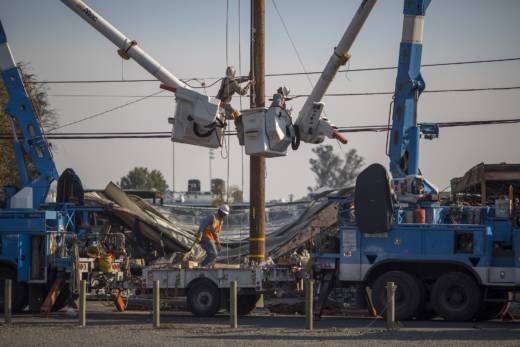PG&E did not respond to a request for comment on Dodd’s statement that changes to the inverse condemnation law won’t be happening this year.
Critics of the utilities argue that any loosening of the inverse condemnation law would remove incentives for utilities to prevent their equipment from contributing to natural disasters.
Gov. Jerry Brown is trying to chart a middle path to deal with the issue. His proposal would make it harder for fire victims to sue utilities for fire damages, while also raising fines for utilities that violate state safety laws and prohibit utilities from passing the cost of those fines onto ratepayers.
“Just as our firefighting techniques and forest management must adapt to this growing threat, so must California laws,” Brown wrote in a letter last month to the committee looking into wildfire preparedness and liability. “The law must establish powerful incentives for utilities to deliver power safely and must hold those who are at fault responsible for the damage they cause.”
Changes to the inverse condemnation law could resurface in the future, and Dodd said Friday that other parts of Brown’s proposal are still alive. He said that the wildfire committee will continue to review other legislation related to wildfire preparedness.
KQED’s Marisa Lagos contributed reporting to this story.
